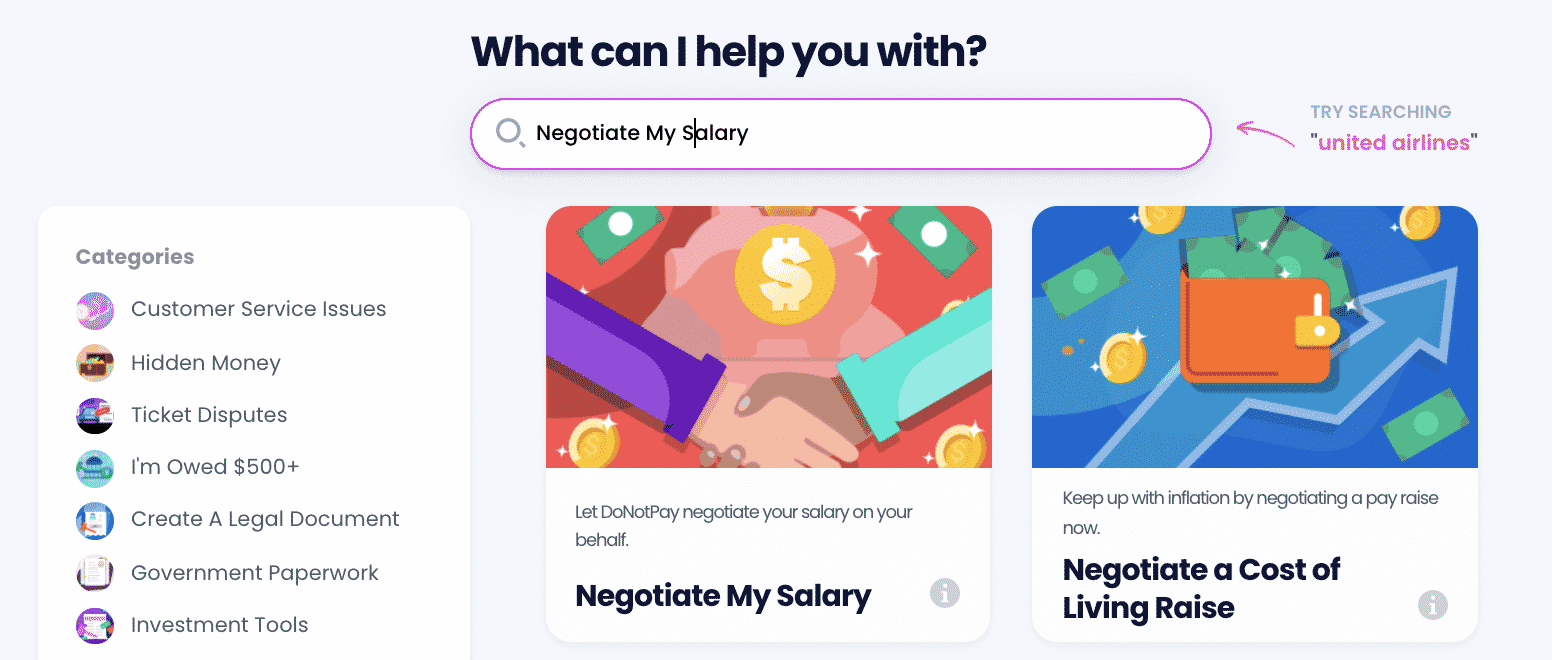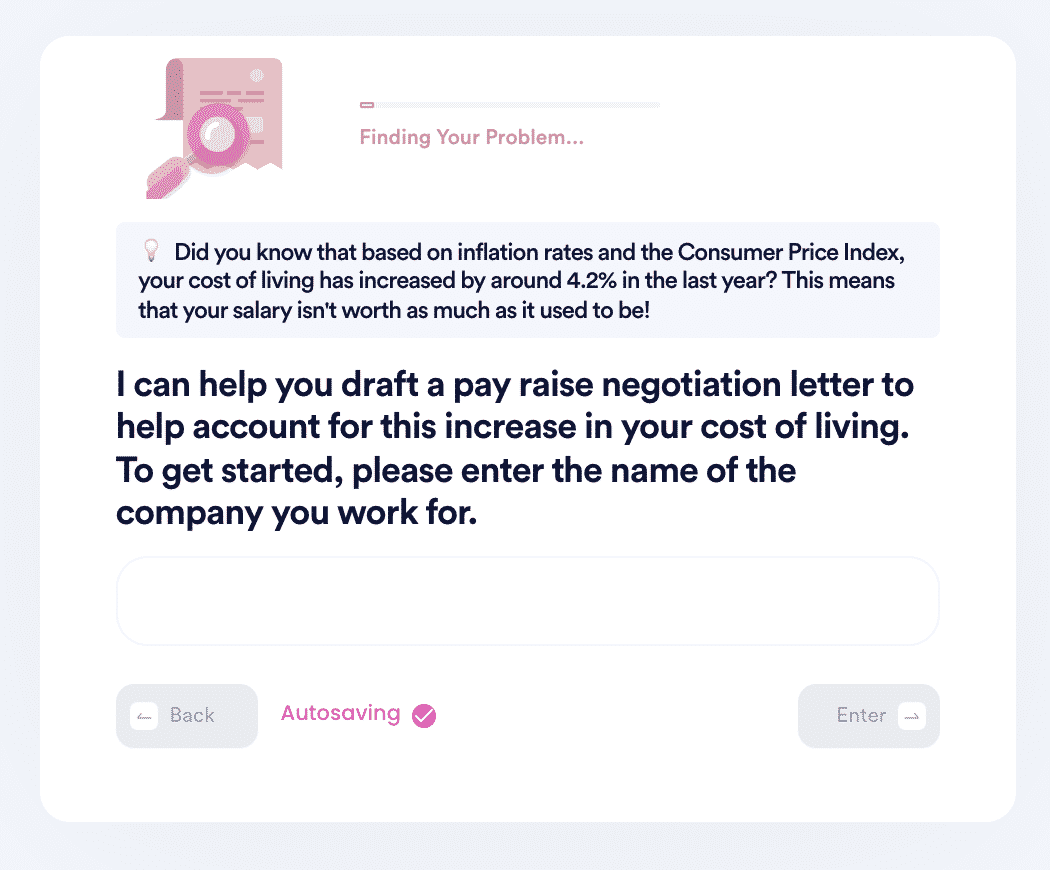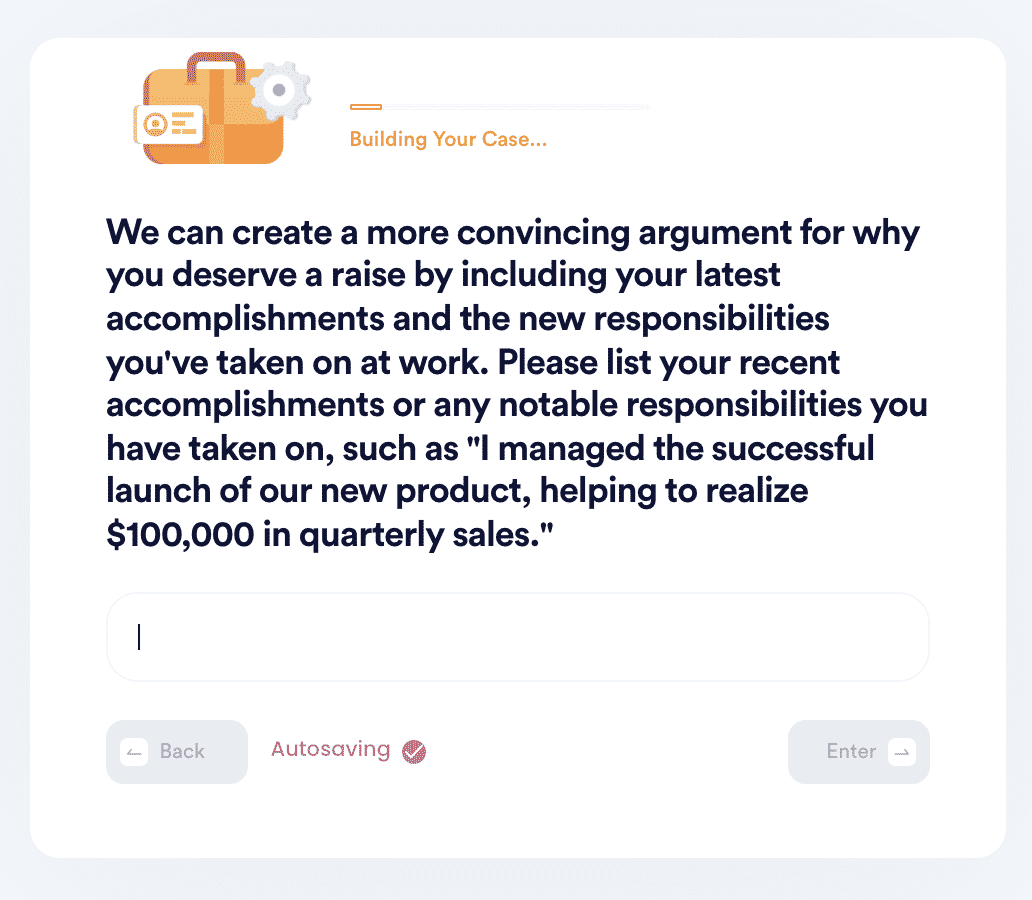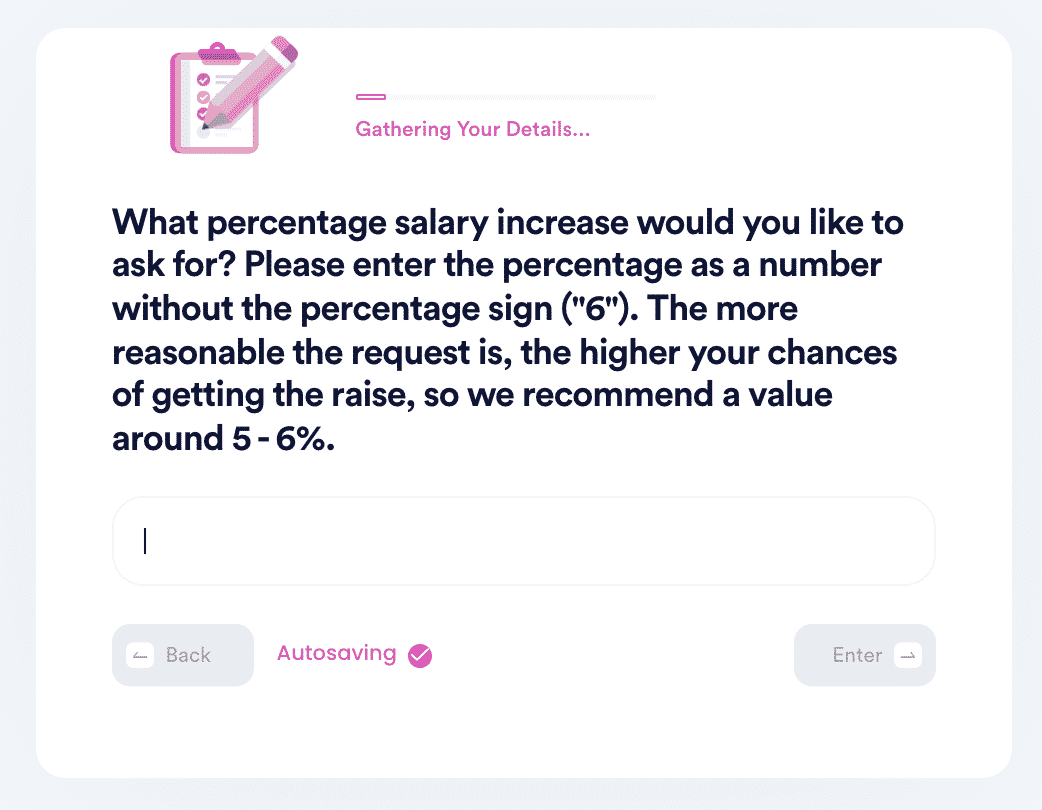Federal Salary Negotiation Letter Example
Whether you've received a new job offer or feel it's time for a raise in your current federal position, you'll have better luck negotiating your to get you started. Federal employees generally receive pay raises ranging from one to three percent, as long as there is no economic crisis happening. The amount of pay raises are determined in the U.S. Federal budget by Congress and happens annually.
However, if your workload or expertise in your federal position has increased, you might seek to get a higher pay rate. Or, if you're offered a new position with a federal agency, you might want a higher rate of pay. Regardless of your reasons, there are certain things you should avoid when negotiating your pay rate, and some things you should try to do.
How to Negotiate Your Salary?
It may feel awkward to counter the salary for a job offer, but the majority of hiring managers (70 percent) actually expect a salary and benefits negotiation, according to experts. So, before you decide to ditch the new job offer or feel uncomfortable approaching the subject, just take time to know the best practices when negotiating a starting salary.
-
Understand Industry Standards
It would not be very effective to come back with a counteroffer that is not in alignment with industry standards. There are many websites you can use to find out what someone in your field makes:
| Looking for fair pay | Salary.Com Company |
| Salary Finder | Career One Stop |
| Find a Career | Indeed Company |
Conversely, you can browse through Quora and see if anyone has discussed your proposed position or ask for yourself.
-
Clearly Define Your Strengths
Don't minimize the amount of offerings you provide. You should be careful, however, not to inflate them, either. Keep it professional and straightforward, so you have the information readily available when you begin your salary negotiation letter. Include things like:
- Years of experience
- Years of leadership experience
- Education level
- Soft skills and hard skills
- Certifications and licenses
- Anything else that makes hiring you a smart decision for the department you're looking at
Take time to jot these things down and be as honest and concise as you can.
-
Keep It Professional, but Friendly
Of course, you know you need to be professional, but it's also helpful to be likable. Remember: your hiring manager is just doing their job and their job offer is not a personal thing. Don't move forward with a negative attitude but, rather, with authentic gratitude for the opportunity. Being personable is a trait that will help you with your negotiation.
-
Be Completely Honest
You might be hit with unexpected questions when you reach out, so make sure you are completely honest throughout your negotiations. It would come out badly if the hiring manager discovers an exaggerated salary comparison you've submitted. Staying honest helps you stay prepared for these questions, and avoid difficult discussions because you'll be prepared with the truth.
-
Consider All Negotiations
Rather than negotiate for just the salary, consider all benefits being offered. You might find you can negotiate better benefits and take a little less of an increase in the salary proposed. Determine if this could be a good way for you to get the salary and benefits that will be satisfactory for you.
-
Take Your Time
There is a difference between reacting and responding. Take time to consider their offer and sit down to honestly evaluate how much you think the position is worth. It's important to be thoughtful and deliberate with what you expect and what you want.
Example Federal Salary Negotiation Letter
You should strive to keep your salary negotiation letter down to one page, although if more space is needed, you can include a separate page with your credentials. Whether you intend to submit your negotiation letter in person, via mail, or email, the format is usually the same. Your letter should have three basic elements:
- An introductory paragraph
- An explanation paragraph
- A clear and concise closing paragraph.
Start the letter with a thank you and show gratitude for the job being offered. Be sure to refer to the exact position and job offer:
Dear [Hiring Manager],
Thank you for your job offer to work at [office name and location] as [position]. I was very happy to receive the job offer and feel confident I could perform the duties outlined in the job description.
In the second paragraph, you should iterate your understanding of the job offer and gently explain that you are not happy with the compensation:
I am clear about the salary and benefits you've outlined for this role, and, for the most part, I find them to be satisfactory. However, I feel the pay rate is less than I expected, given my years of experience and expertise and it does not align with the industry standard in [location] for [job role], with my level of experience.
Finally, take a few moments to list some of the attributes that the department will benefit from by hiring you. You might list some accomplishments you achieved in another similar role at another company, or additional training you have received that will enhance your performance in this particular department.
Close the letter with a clear statement of your expectations:
Given my extensive experience, knowledge, and specialization, I believe we can come to a mutually beneficial agreement where salary is concerned. Please let me know when you can meet to discuss this.
How to Negotiate Federal Salary With the Help of DoNotPay
It can be nerve-wracking to go through the process of but DoNotPay makes the process much easier in just four steps. All you have to do is:
- Search "negotiate my salary" on DoNotPay.

- Enter the name of your company and the industry you work in, so we can find the right wage statistics for your role.

- Answer a series of questions regarding your qualifications and achievements, relocation expenses, and other job offers if applicable.

- Enter the new base salary you would like to request.

And that's it! Once the information is finalized, will generate an official salary negotiation letter that you can then email or present to your employer!
What Else Can DoNotPay Do?
DoNotPay can also help you with:
- How to ask for a raise
- How to ask for a raise through email
- Learn how much raise you should ask for
- Learn if you should negotiate salary
- Learn how to negotiate salary over the phone
- Learn how to negotiate salary through email
- Learn how to get a raise
- Learn about reducing property taxes
- Learn how to cancel
- Learn about fights in the workplace
- Learn chargebacks and refunds


